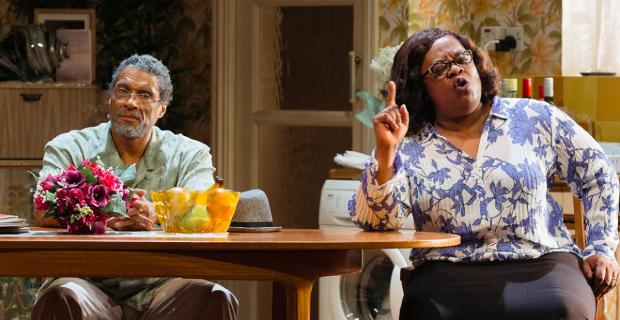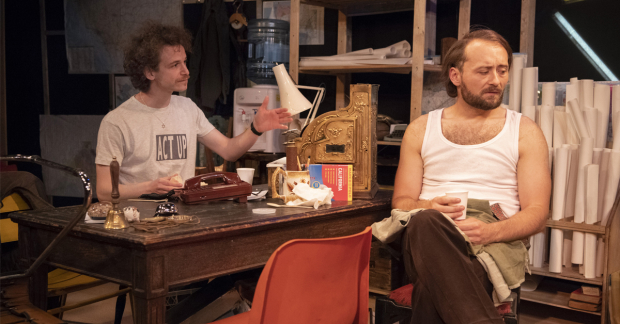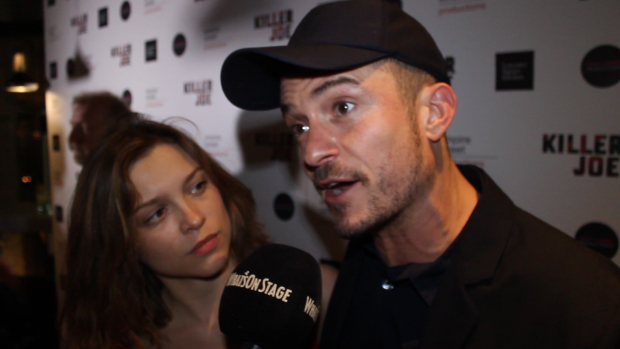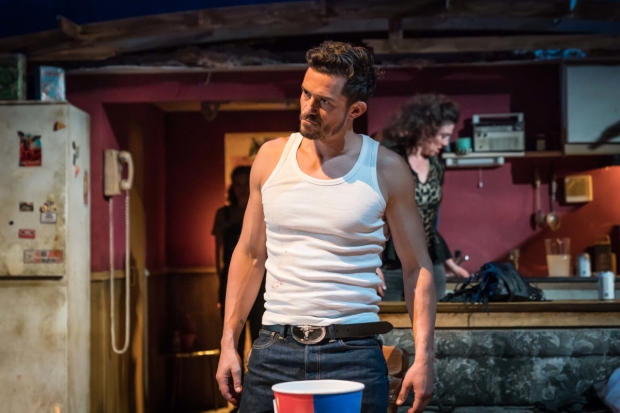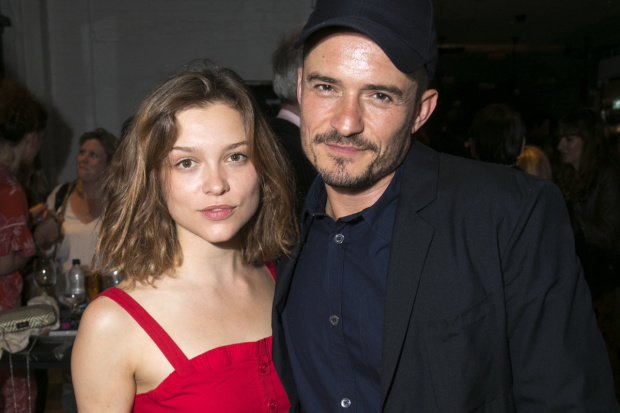Review: Two for the Seesaw (Trafalgar Studios)
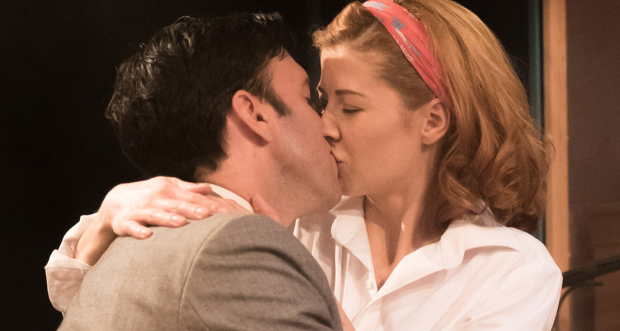
© James Davidson
Jerry (Charles Dorfman) and Gittel (Elise Bennett) are two unlikely lovers in New York – sleeping together in a city that never sleeps. On either side of 30 years-old, one is scared of taking the next step in their lives, the other too worried that they haven't taken enough steps. They're on an emotional seesaw, polar opposites – one rides high when the other is at their lowest. Yet, somehow, they co-exist, lovingly, fractiously, at times tempestuously. But for how long?
For a play celebrating its 60th birthday (the original Broadway run starred Henry Fonda and Anne Bancroft) William Gibson's Two for the Seesaw has done well standing the test of time. It charts romantic ups and downs many will relate to, based in a city that is becoming increasingly expensive, where an uncertain future is the only guarantee. There'll be a fair few millennials finding something that speaks to them. Gittel is a dancer derailed by injury while Jerry is a lawyer running from the past with a sense of self-esteem through the floor. With its crotchety relationship, savvy, smart dialogue and nuanced portrayal of modern love, Two for the Seesaw feels like a natural precursor to the likes of When Harry Met Sally, or even La La Land.
Two tiny New York apartment rooms – one peach, crisp and organised, the other dank, turquoise and sparsely furnished – are nestled side by side on Max Dorey's intimate staging. The piece bounces between them, like some perpetual ping-pong game, scenes occurring in one before hopping across the Big Apple to happen in the other. A solitary telephone line runs between them. The general atmosphere is helped by Max Pappenheim's brass-y compositions, a clear ode to André Previn's score from the 1960s film adaptation.
There are some tender moments, particularly in the second act, but it feels like Gibson's whip-sharp dialogue has a tendency to run away from the pair. It's a tricky balancing act, having to engage in a battle of wits while also showing an underlying subtext of attraction, and Gary Condes' direction doesn't give Dorfman and Bennett too many moments to really display that. The relationship is full of repartee, but little romance.
Some nicely crafted one-liners are primly delivered, particularly by a constantly engaging Bennett, but when the core pairing of the play isn't convincing, it all runs out of steam far earlier than necessary. The show manages to pick up in the second half as secrets and insecurities come tumbling out, but all in all, it's something of an underwhelming experience.



